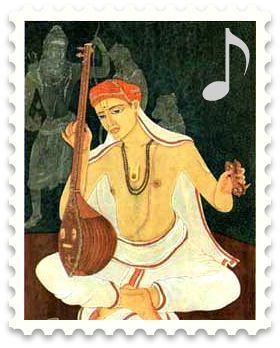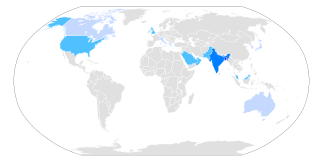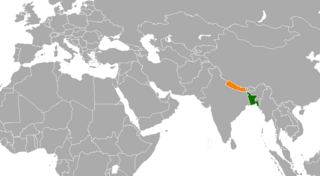
Bangladesh, officially the People's Republic of Bangladesh, is a country in South Asia. It is the eighth-most populous country in the world and among the most densely populated with a population of 170 million in an area of 148,460 square kilometres (57,320 sq mi). Bangladesh shares land borders with India to the north, west, and east, and Myanmar to the southeast. To the south, it has a coastline along the Bay of Bengal. To the north, it is separated from Bhutan and Nepal by the Siliguri Corridor, and from China by the mountainous Indian state of Sikkim. Dhaka, the capital and largest city, is the nation's political, financial, and cultural centre. Chittagong is the second-largest city and the busiest port. The official language is Bengali, with Bangladeshi English also used in government.

Bengal is a historical geographical, ethnolinguistic and cultural term referring to a region in the eastern part of the Indian subcontinent at the apex of the Bay of Bengal. The region of Bengal proper is divided between the modern-day sovereign nation of Bangladesh and the Indian state of West Bengal.

Dhaka, formerly known as Dacca, is the capital and largest city of Bangladesh. It is the ninth-largest and seventh-most densely populated city in the world with a density of 23,234 people per square kilometer within a total area of approximately 300 square kilometers. Dhaka is a megacity, and has a population of 10.2 million residents as of 2024, and a population of over 23.9 million residents in Dhaka Metropolitan Area. It is widely considered to be the most densely populated built-up urban area in the world. Dhaka is the most important cultural, economic, and scientific hub of Eastern South Asia, as well as a major Muslim-majority city. Dhaka ranks third in South Asia and 39th in the world in terms of GDP. Lying on the Ganges Delta, it is bounded by the Buriganga, Turag, Dhaleshwari and Shitalakshya rivers. Dhaka is also the largest Bengali-speaking city in the world.

Dhaka Division is an administrative division within Bangladesh. Dhaka serves as the capital city of the Dhaka Division, the Dhaka District and Bangladesh. The division remains a population magnet, covers an area of 20,508.8 km2 with a population in excess of 44 million, It is the most populous country second level division of the world, growing at 1.94% rate since prior count, compared with national average of 1.22%. However, national figures may include data skewing expatriation of male labor force as gender ratio is skewed towards females.

Pohela Boishakh is the Bengali New Year celebrated on 14 April in Bangladesh and 15 April in the Indian states of West Bengal, Tripura, Jharkhand and Assam. It is a festival based on the spring harvest—which marks the first day of the new year in the official calendar of Bangladesh.

The music of West Bengal includes multiple indigenous musical genres such as Baul, Ramprasadi, Bishnupuri Classical, Kirtan, Shyama Sangeet, Rabindra Sangeet, Nazrul Geeti, Dwijendrageeti, Prabhat Samgiita, Agamani-Vijaya, Patua Sangeet, Gambhira, Bhatiali, Bhawaiya, Bengali Rock.

Bengalis, also rendered as endonym Bangalee, are an Indo-Aryan ethnolinguistic group originating from and culturally affiliated with the Bengal region of South Asia. The population is divided between the sovereign country Bangladesh and the Indian regions of West Bengal, Tripura, Barak Valley, Goalpara, Andaman and Nicobar Islands, and parts of Meghalaya, Manipur and Jharkhand. Most speak Bengali, a language from the Indo-Aryan language family. Sub-section 2 of Article 6 of the Constitution of Bangladesh states, "The people of Bangladesh shall be known as Bengalis as a nation and as Bangladeshis as citizens."

The culture of Bengal defines the cultural heritage of the Bengali people native to eastern regions of the Indian subcontinent, mainly what is today Bangladesh and the Indian states of West Bengal and Tripura, where they form the dominant ethnolinguistic group and the Bengali language is the official and primary language. Bengal has a recorded history of 1,400 years. After the partition, Bangladeshi culture became distinct from the mainstream Bengali culture, thus their culture evolved differently, still there are many commonalities in Bangladeshi culture & West Bengali culture which connects them both together as Bengali culture.
ITC Sangeet Research Academy is a Hindustani classical music academy run by the corporate house, ITC Ltd. It is located in Kolkata, India. Noted musicians associated with the academy include Ulhas Kashalkar, Falguni Mitra, Ajoy Chakrabarty, Ustad Rashid Khan, Mashkoor Ali Khan, Girija Devi, and Subhra Guha. Satyajit Ray, was one of the trustees.

ITC SRA Sangeet Sammelan is an annual Indian classical music festival organised by ITC Sangeet Research Academy held by turn in various cities in India.

The bilateral relations between Bangladesh and Nepal have been progressive since the foundation of Bangladesh in 1971. The two nations are separated by the "Siliguri Corridor" - a 22 kilometres (14 mi) wide stretch of territory of the Indian state of West Bengal that lies between southern Nepal and northern Bangladesh. Both South Asian nations are members of the South Asian Association for Regional Cooperation (SAARC), the Bay of Bengal Initiative for MultiSectoral Technical and Economic Cooperation (BIMSTEC), and the United Nations (UN).

Ananda Gopal Bandopadhyay was an Indian tabla player. He was trained in the style of the Benaras Gharana by his teacher Mahadev Prasad Mishra. His father, Radha Gopal Bandopadhyay, was an amateur vocalist. Bandopadhyay has accompanied several notable vocal musicians, as well as producing solo recordings, and giving solo performances.

Bengali Muslims are adherents of Islam who ethnically, linguistically and genealogically identify as Bengalis. Comprising about two-thirds of the global Bengali population, they are the second-largest ethnic group among Muslims after Arabs. Bengali Muslims make up the majority of Bangladesh's citizens, and are the largest minority in the Indian states of West Bengal, Tripura and Assam.
Pandit Kushal Das, born in Kolkata in 1959, is an Indian classical sitar and surbahar player.

Nandini Shankar is an Indian violinist who performs Hindustani classical music and fusion. She is the daughter of Sangeeta Shankar and granddaughter of N. Rajam.

Dhaka is the most populous city of Bangladesh and is characterized by its busy urban life and a variety of cultural experiences, including festivities, cuisine, entertainment, shopping, and sites of interest. The nature of these activities mirrors the secular character of the city's population. Important holidays include Language Movement Day, Independence Day, Victory Day, and Pahela Boishakh. Religious festivals include Eid ul-Fitr, Eid ul-Adha, Durga Puja, Buddha Purnima, etc. The culture of Dhaka is based on the culture of Bengal.

Sandip Bhattacharjee, is an Indian classical singer belonging to the Kirana gharana .His repertoire covers pure classical, Khyal, Thumris, Ghazals etc.
Azad Rahman was a Bangladeshi composer. He won Bangladesh National Film Award for Best Music Director twice and Best Male Playback Singer once for his performance in the films Jadur Bashi (1977) and Chandabaz (1993). He received a gold medal in 2011 from Rabindra Bharati University in Kolkata.

Folk music is one of the genres of music in Bangladesh. It is mainly Bengali's own music. This music talks about the lives of the people of rural Bengal, happiness, and sorrow. There are many parts to it again. It highlights the culture of a country or any region of the country.
















